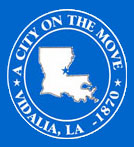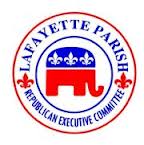
Fast, affordable Internet access for all.

On June 22, Mayors from around the country gathered at the U.S. Conference of Mayors 82nd Annual Meeting. Members of the Standing Committee on Transportation and Communications voted to combine Resolution #115 "Net Neutrality" and #114 "Preserving a Free and Open Internet."
Resolution #115 was of particular interest to community broadband advocates because it called on the FCC to preempt state laws erecting barriers to local authority.
The final product, officially approved by the USCM, retained the language supporting Chairman Wheeler's intention to help smooth the road for publicly owned networks:
BE IT FURTHER RESOLVED, that the US Conference of Mayors recommends that the FCC preempt state barriers to municipal broadband service as a significant limitation to competition in the provision of Internet access.
As the FCC considers its next move in the question of local telecommunications authority, a growing number of organizations are expressing their official support. The American Public Power Association (APPA) recently passed a resolution supporting the doctrine that local communities should not be precluded by states from investing in telecommunications infrastructure.
The APPA official resolution, approved by members on June 17, urges Congress, the FCC, and the Obama Administration to officially support the ability for public power utilities to provide advanced communications services. The resolution states:
That Congress should state in clear and unequivocal language that it supports the ability of local governments, including public power utilities, to provide advanced communications services that meet essential community needs and promote economic development and regional and global competitiveness.
The Illinois community of Urbana, home of UC2B, recently passed a resolution in favor of FCC's section 706 authority. The community's fiber project is bridging the digital divide in this community of 41,000.
On March 17, the City Council voted unanimously to support the FCC as it considers action to discourage, prevent, and remove state legislative barriers that block municipal networks.
The language is similar to resolutions from communities such as Sebewaing, Vidalia, Ammon, and Moultrie. Urbana noted in its resolution that it has made substantial efforts to bring access to more people in the community. We interviewed Carol Ammons from the U-C Independent Media Center and Brandon Bowersox-Johnson from UC2B in episode 42 of the Community Broadband Bits podcast. Chris, Carol, and Brandon discussed the way the community is capitalizing on the rare urban FTTH network.
A RESOLUTION TO SUPPORT FCC EFFORTS IN PROTECTING LOCAL AUTHORITY
TO BUILD BROADBAND INFRASTRUCTURE
Two more communities have gone on the record as supporting local authority for telecommunications infrastructure investment. Communities in Vidalia and Sebewaing passed resolutions supporting the FCC's efforts to use its authority to discourage, prevent, and remove state barriers.
Vidalia, on the west side of the Mississippi in Louisiana, recently began offering free Wi-Fi in its new sports complex and along its riverfront. According to Mayor Hyram Copeland, the lack of free public access left local leaders feeling behind the times. From a Natchez Democrat article in February:
“I was embarrassed to say, ‘No,’ but now I can say we do,” Copeland said. “But the end result of all this is that we will have moved this community forward.”
Vidalia seeks funding for a fiber network. Apparently, they are ready with a design and have the technical expertise in-house, but lack of funds have held up the project.
Vidalia's Resolution is almost identical to those in Ammon, Moultrie, Westminster, and Chanute.

We reported on Sebewaing, located in Michigan's "thumb," last summer. The community runs its own electric utility and, due to lack of interest from incumbents, decided a FTTH network was a project they needed to pursue. According Melanie McCoy, from Sebewaing Light and Water, the project is proceeding as planned.
Two more communities recently passed resolutions in support of local authority for broadband networks.
We have written about Ammon and its open access network in southeast Idaho. The municipal network connects anchor institutions and wireless towers in the community of approximately 14,000 people. Chris spoke with Bruce Patterson, Ammon's Technology Director, in Episode 86 of the Community Broadband Bits podcast.
Their Resolution 2014-0005, signed by Mayor Dana Kirkham, reads:
WHEREAS, the universal availability of affordable high speed Internet access for all citizens has been identified as a national priority; and
WHEREAS, community/municipal broadband networks provide an option for market competition, consumer choice, economic development, and universal, affordable Internet access; and
WHEREAS, historically, local governments have ensured access to essential services by banding together to provide those services that were not offered by the private sector at a reasonable and competitive cost. This involvement has included electrification, water supply, public libraries, and other important services; and
WHEREAS, the City Council of the City of Ammon recognize that their economic health and survival depend on connecting the community, and they understand that it takes both private and public investment to achieve this goal; and
WHEREAS, state constitutions and state statutes exist that may limit or prohibit local government deployment of municipal Internet services, which has the potential of prohibiting or limiting the ability of local government to provide important information and services to their citizens in a timely, efficient, and cost effective manner; and
WHEREAS, local governments, being closest to the people are the most accountable level of government and will be held responsible for any decisions they make; and
WHEREAS, the DC Circuit Court has determined that Section 706 of the Federal Telecommunications Act of 1996 unambiguously grants authority to the Federal Communications Commission (FCC) to remove barriers that deter network infrastructure investment;
We recently reported that local leaders in Chanute and Westminster had passed resolutions supporting the FCC as it considers its authority. The Kentucky Municipal Utilities Association (KMUA) passed a similar resolution on February 28th.
KMUA members include 45 city-owned utilities including electricity, water, wastewater, natural gas, and telecommunications services. Members include places our readers are familiar with - Franklin, Glasgow, and Russellville - in addition to a lengthy list of other Kentucky communities.
The KMUA is publicly offering its support to the recent court decision finding that the FCC has the authority to remove or prevent state barriers.
The resolution reflects one of the KMUA credos, as listed on their website:
KMUA opposes any action, legislative or administrative, which would curb, limit, or remove local control of the operations of municipal utilities from their citizen owners.
We expect to see more resolutions like this as communities decide to go on record. The language is very similar to the Chanute and Westminster resolutions. We have made the document available below.
In light of the recent announcement, community leaders in Maryland and Kansas are rallying behind the FCC as it considers its authority under Section 706 of the 1996 Telecommunications Act. In a show of support, the Westminster Mayor and Common Council passed Resolution 14-01, a statement in support of restoring and preserving local authority to build networks. Twelve hundred miles away in Chanute, the City Commission took the same action with Resolution 2014-17.
Readers will remember Westminster as the central Maryland town that has carefully progressed forward in realizing better connectivity. The community recently approved a fiber pilot project as a way to test the water. Our contact in Westminster, Dr. Robert Wack, reported that interest in the network has blossomed even before the start of construction. The network has already attracted one new employer from New York.
Our 2012 case study, Chanute’s Gig: One Rural Kansas Community’s Tradition of Innovation Led to a Gigabit and Ubiquitous Wireless Coverage, tells the story of how the community incrementally built a world-class network. Without borrowing or bonding, Chanute's next-generation fiber network has enhanced education, economic development, and saved millions of taxpayer dollars.
This legislative session, Chanute has contended with threatening state legislation that could derail their expansion plans. The community is very close to a project that would offer fiber services to every premise in town.
We were happy to report when HB 282 failed to advance on the floor of the Georgia General Assembly House in a bipartisan vote. We were equally pleased to learn that at least one Georgia community passed an official resolution opposing the bill while it was making its way through the committee process.
Alpharetta, an Atlanta suburb, is home to 57,000 people and calls itself the "Technology City of the South." The community has no municipal network and no current plans to invest in one, but nevertheless passed a resolution on February 25th which opposed HB 282.
A Bob Pepalis article on the decision quoted Councilman Jim Gilvin:
"Once again I think this is just a state legislator jumping into local business. And I appreciate their concerns, but we do a pretty good job around here, I think. And if residents don't think so, they will be more than happy to let us know," Gilvin said. "I'd appreciate it if they'd just let us handle our government."
Pepalis heard similar sentiments from Councilman Chris Owens via email
"This goes not only beyond local control, but also impacts our ability and other communities ability to be masters of our own destiny and influence on development as well as provides services to their constituents, both residential and commercial," Owens said. "If that's something in a community's best interests, who better to make that decision than a community rather than the state on behalf of the community."
First, the resolution [PDF] sums up the real world affects of the proposal, if it had passed:
WHEREAS, House Bill 282 would tie the hands of municipal officials in their efforts to build digital networks they need to attract economic development and create a high quality of life for their citizens; and
WHEREAS, House Bill 282 is a bill that would undermine self-determination of cities in the digital age as illustrated by the following:
We, the members of the Lafayette Democratic Parish Executive Committee, believe the project will enhance businesses, enrich our lives, and prepare our children for the future. With proper planning, future generations will see profits generated by this project stay in this community and improve businesses and lives for generations to come. Improving local communities has been the traditional purpose of the Democratic Party. With that in mind, we commend City-Parish President Joey Durel for his bold initiative to make this plan a success.A few weeks later, the Lafayette Republican Party endorsed the network [pdf] as well:

...